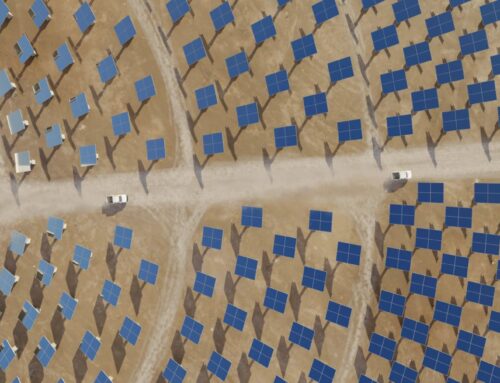CalState Dominguez Hills launches second renewable energy competition
November 28, 2025

The second year of the Arevon Fellows Program and Applied Innovation Renewable Energy Competition — which tasks students with developing renewable energy projects — has officially begun.
The community-focused fellowship and competition is a partnership between Arevon, a leading renewable energy developer, owner and operator, and Cal State Dominguez Hills. Arevon is contributing $50,000 to the program, with $20,000 going to support the fellowship and $30,000 available as prize money.
The competition challenges students to develop renewable energy projects that could feasibly be implemented in their communities. The end goal, Arevon spoksperson Trish Evans said, is for the future community leaders of Carson to create innovative, renewable energy development projects and improvements.
“These are projects that can actually be implemented into their community,” Evans said. “They (the students) get to gain more knowledge about where they live (and) the needs that they have that are crucial to the energy infrastructure.”
The competition is not restricted to CSUDH students, however. All Southern California community college students are also able to participate. From December to February, CSUDH will offer information sessions and workshops for anyone interested in sharing their ideas. Arevon experts will be present to work with students on refining their projects and troubleshooting. Applications will then be due in mid-February.
“Through this partnership, we’re empowering students to come up with new ideas for utilizing renewable energy in their communities,” said Arevon CEO Kevin Smith. “This Program is educational, fun and generates a lot of enthusiasm. We enjoy seeing the students’ innovative projects and Arevon is happy to champion this important initiative for the second straight year.”
Another part of the program is the Arevon fellowship. The fellow is in charge of organizing the competition and helping students connect with industry and community partners. This year’s fellow is Emily Mejia, a senior criminal justice major.
David Ochi, executive director of the CSUDH Innovation Incubator, said that he has seen this program not only increase students’ education, but also instill community partnerships and spark the beginnings of groundbreaking, one-of-a-kind renewable energy projects that have a future in the community. This is a special idea when it comes to innovation competitions,Ochi said.
“There’s so many competitions in the startup world about who’s got the latest, greatest tech (and) that’s going to be the next billion dollar company,” Ochi said. “And this (competition) is about those billion dollar ideas actually making a difference in the community. The students don’t have to invent new solar battery technology. They need to go find somebody or a company that’s done that and now go find an opportunity to bring that to their community where it can make a big difference.”
Last year’s winning team, for example, has continued developing their idea and is currently working with CSUDH to create a floor that produces energy when walked on that would be located on campus, Ochi said.
“Beyond just the students experiencing the competition,” Ochi said, “the goal is to really see somebody show up from the city and say, ‘You know what? I think we could do this in our city,’ or ‘Why are you doing it over in that city? Come to my city and let’s do it there,’ and actually see some of these renewable energy projects make an impact in the community.”
The competition will take place on March 12 at the CSUDH Innovation Incubator. More information on workshops and how to apply can be found at incubator.csudh.edu/aire.
RevContent Feed
Search
RECENT PRESS RELEASES
Related Post









